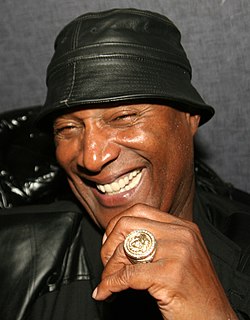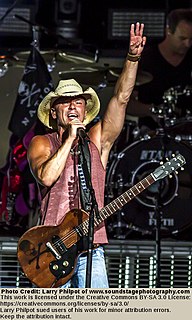A Quote by Willie Parker
I'm full of clichés - I was raised by a Southern black woman and they had a saying for everything.
Related Quotes
Beware of clichés. Not just the clichés that Martin Amis is at war with. There are clichés of response as well as expression. There are clichés of observation and of thought - even of conception. Many novels, even quite a few adequately written ones, are clichés of form which conform to clichés of expectation.
I was raised in a completely black world. In those days, if a white woman married a black man, she lived as a black woman, and that was just the end of it. So, I don't have a feeling of being bi-racial. I don't have a connection to it. People often come up to me thinking I do have a connection to it, and I kind of let them down because I really don't.
Martin Scorsese was one of the few who had not been an assistant. Most of the guys had been an assistant and worked their way up. But I had seen an underground picture he had made in New York, a black-and-white film. I had done a picture for American International, about a Southern woman bandit, the Ma Barker story, and it was very successful, and I had left to start my own company, and they wanted me to make another one.
While I might not have a specific experience that is fully American, there is still a knowledge, something that I logically understand as a black woman and a black woman who is existing in America and a black woman who is in the diaspora that are just known quantities that I think anyone can relate to who is black.
Saying that a great genius is mad, while at the same time recognizing his artistic worth, is like saying that he had rheumatism or suffered from diabetes. Madness, in fact, is a medical term that can claim no more notice from the objective critic than he grants the charge of heresy raised by the theologian, or the charge of immorality raised by the police.
You are a white. The Imperial Wizard. Now, if you don't think this is logic you can burn me on the fiery cross. This is the logic: You have the choice of spending fifteen years married to a woman, a black woman or a white woman. Fifteen years kissing and hugging and sleeping real close on hot nights. With a black, black woman or a white, white woman. The white woman is Kate Smith. And the black woman is Lena Horne. So you're not concerned with black or white anymore, are you? You are concerned with how cute or how pretty. Then let's really get basic and persecute ugly people!




































